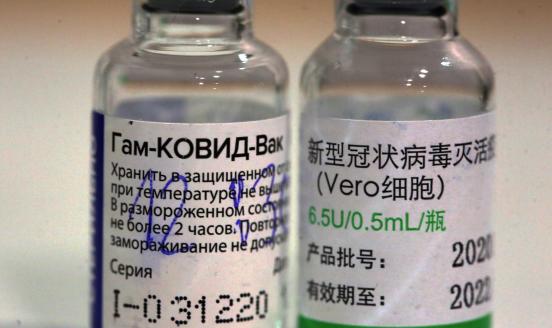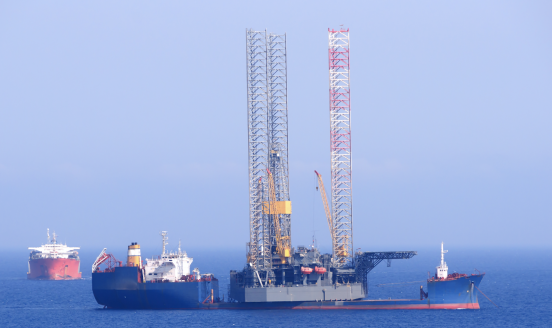Has COVID-19 dented the EU’s credibility in the Balkans?
Muddled initial reactions to the COVID-19 crisis tarnished the EU’s image in the Western Balkans. Europe should not take for granted the extent of its

The European Union’s soft power, largely stemming from the attractiveness of its model, could be impaired by COVID-19. The EU’s external influence is strongest in countries that seek to emulate the EU and eventually become members, principally today in the Western Balkans: Albania, Bosnia-Herzegovina, Kosovo, Montenegro, North Macedonia, and Serbia.
However, the lack of solidarity among EU countries in the first weeks of the COVID-19 crisis response, the closing of borders that left many people stranded and the apparent lack of concern for the needs of the region dented the EU’s image in the Balkans.
The EU’s shaky initial response towards its neighbours in south-east Europe did not help improve perceptions. It initially banned exports of medical supplies to them, and even though this step was subsequently corrected it left an impression of abandonment. Though the EU reprogrammed and topped up ongoing assistance to help these countries meet crisis needs, it did not include them in its own crisis recovery package. As a result, the credibility of the EU’s outreach to the region, already eroded by apparently endless membership talks and enlargement fatigue, seems to have been further dented.
Competition from China and Russia to win hearts and minds in the Balkans
On the pretext of tackling the public health and economic crisis, Balkan countries have relapsed into authoritarian rule, despite EU pro-democracy prodding.
COVID-19 has encouraged China and Russia, already active in the Balkans, to try to fill the widening geopolitical gap by offering assistance and investment as well as negative reporting, fake news and disinformation aimed at the EU. Pro-Russian media portray EU assistance as a belated effort to catch up with Russian and Chinese support. Storylines include rumours of the EU’s imminent collapse because of its failure to deal with the pandemic, the Union’s selfishness in its external actions, and its exploitation of the crisis to advance its own interests. By contrast, these sources portray Russia and China as the only trustworthy powers in the crisis, and as saviours who helped Italy and Serbia while the EU dithered.
Statements from political leaders in Serbia reinforce this narrative, building on longstanding government claims that the country benefits from close links with China and Russia as well as the EU. President Aleksandar Vučić called European solidarity “a fairy tale” and said that China was the only country able to provide substantial aid to Serbia in the crisis. Posters of President Xi Jinping and Chinese flags were displayed prominently in Belgrade for several weeks. Images of Prime Minister Ana Brnabić meeting the first of eleven Russian planes carrying supplies were broadcast live on Serbian television.
Media monitoring by the CRTA[1] shows that between March and May 2020, Serbian news articles about China became much more positive and articles about the EU rather more negative (Figure 1). Serbian state television regularly presented the EU in a negative light, while depicting China and Russia positively.
But reactions have differed across the Balkans. Some countries, particularly Kosovo, have been less euphoric about aid from China and Russia and more appreciative of EU and United States assistance. Albania remains the most pro-EU country in the region, despite economic support from China. At the peak of the epidemic, Albanian prime minister Edi Rama went to see off the plane carrying 30 Albanian doctors to Italy and gave a speech in Italian, stating “We don’t abandon a friend in need”. Italian Prime Minister Giuseppe Conte thanked him for it and Albanian aid to Italy was widely covered by Italian media. Nonetheless, Euroscepticism in Albania is growing and a vocal minority has been diffusing anti-EU messages during the COVID-19 crisis.
Despite the EU’s longstanding engagement as principal backer of the Western Balkans, the EU has some way to go before becoming the region’s favoured partner in collective perceptions.
Despite the EU’s longstanding engagement as principal backer of the Western Balkans, the EU has some way to go before becoming the region’s favoured partner in collective perceptions. The International Republican Institute’s March 2020 poll in the Western Balkans (excluding Albania) found that respondents had a range of perceptions of their country’s economic ties with foreign countries. A majority of Serbian respondents identified China and Russia as their state’s main economic partners while most Kosovan respondents cited the US and Germany. In Bosnia and Herzegovina, North Macedonia and Montenegro respondents were split between identifying western countries, China, Russia and Turkey as their most important economic partners.
Nonetheless sentiment towards different foreign partners is not deeply rooted. Figure 2 shows the path which respondents think their country’s foreign policy should follow. Montenegrin respondents are the most convinced about strengthening ties with the EU and the West. In Serbia, 43% of respondents favour a pro-EU and pro-Western policy course, while 46% favour balanced or pro-Russian policies. Half of respondents had a favourable opinion of China, except in Kosovo where the rate was 14%. In Serbia, 85% of respondents had a favourable attitude towards China, versus only 63% towards Germany.
EU assistance to the Balkans
The EU announced a €3.3 billion assistance package for the Western Balkans on 29 April. It involves support from the Commission and the European Investment Bank for emergency needs, recovery and reconstruction. Figure 3 gives the breakdown of the support package and its distribution by country.
This announcement came on the eve of a long-planned EU-Western Balkans Summit, held by video conference on 6 May 2020. The summit declaration included an unusual rebuke: “The fact that (EU) support and cooperation goes far beyond what any other partner has provided to the region deserves public acknowledgement.” President Vučić responded to this and other critical remarks from EU leaders by recognising EU efforts. EU Council President Charles Michel acknowledged Serbia’s assistance to Italian residents and aid to other Balkan countries.
Besides financial assistance, the EU included the Western Balkans in its scheme for the joint procurement of personal protective equipment and ‘green lane’ border crossing arrangements, designed to ensure that any checks and health screening of transport workers do not cause delays of more than 15 minutes – a crucial measure given that 83% of the region’s exports go to EU countries, much of which is transported by road. The Commission has announced for later in 2020 a longer-term economic and investment plan needed to tackle decades of under-investment in infrastructure, an area in which China is particularly active. The European Bank for Reconstruction and Development, not an EU institution, intervened rapidly after the onset of the epidemic with additional funds for rescue, reconstruction and recovery.
The EU has accompanied its assistance with a narrative of solidarity with the region. In announcing the €3.3 billion package, the Commission president commented: “We have a special responsibility to assist in this pandemic our partners in the Western Balkans, as their future clearly lies in the European Union.”
But this formulation is wearing thin as membership remains an elusive goal. There was disappointment in the Balkans that the May summit did not give a stronger signal. Key words – such as enlargement – were missing from the final declaration, and Balkan countries had to make do with the vaguer term perspective, which has been used for the past two decades. ‘Improvements’ in the accession process are more about keeping cautious member states on board than about making membership credible to the population of the region. The EU’s long delayed decision in March to open membership talks with Albania and North Macedonia was a positive step, though no starting date was fixed and Albania faces additional hurdles. After eight years of such talks with Montenegro and nearly seven with Serbia, there is little prospect of any new member joining within the foreseeable future.
Recommendations
If the EU wishes to recover its influence in the Balkans following COVID-19, it needs to fine tune both incentives and conditionality. This means conveying to the region a deeper sense of attachment and inclusion and identifying new ways to involve Balkan citizens in European institutions and programmes. The scale of financial assistance should match the ambitious goal of integrating the region progressively into the EU. In exchange, Balkan leaders must establish unequivocally democratic forms of government, improve governance, fight corruption, and provide a convincing demonstration of reconciliation and engagement with neighbours and minorities.
If the EU wishes to recover its influence in the Balkans following COVID-19, it needs to fine tune both incentives and conditionality.
The Balkans should be fully included in the EU’s ‘green recovery’ and efforts to build a digital single market. The likely shift towards partial decoupling from China and the reshoring of jobs to Europe could create new opportunities for Balkan countries, with their competitive labour markets, geographic proximity to the EU and prospects of eventual EU membership. The EU should work with aspirant countries to improve their investment climates and make their EU membership prospects more credible. The EU should make the Balkans a priority region for its new initiative to fight disinformation related to COVID-19.
In a break with precedent, the EU could consider a new two stage accession process to provide encouragement to reformers in the region and convince EU governments that future members will not repeat the kind of rule-of-law backsliding witnessed in Hungary and Poland. In a first stage, candidate countries would be brought progressively into the single market and gradually given the benefit of structural funds, provided they demonstrate commitment to democracy and the rule-of-law. When they have established a convincing track record and completed membership negotiations successfully, they could graduate from this new form of probationary membership to full membership. This idea could be explored in the Conference on the Future of Europe, which the German government intends to relaunch in the second half of 2020 under its presidency, after postponement because of COVID-19.
Enhanced assistance for recovery and reconstruction following the epidemic could provide an opportunity to reinforce conditionality, while emergency and humanitarian assistance remain needs-based. Conditionality should relate to sound economic management, social and economic necessities, shared policy goals, democracy and the rule of law.
A February 2019 paper (that focused on Bosnia-Herzegovina but whose conclusions are relevant to the region as a whole) suggested that such conditionality could apply to EU assistance under the EU’s forthcoming Economic and Investment Plan for the Western Balkans and to the EU’s Instrument for Pre-Accession Assistance Programme (IPA) for 2021-2017, as well as macro-financial assistance.
The EU’s credibility as a soft power player with countries around the world depends on demonstrating its effectiveness at safeguarding basic values within the Union and in its own backyard. This hinges as much on perceptions as on objective measures taken.
The EU’s credibility as a soft power player with countries around the world depends on demonstrating its effectiveness at safeguarding basic values within the Union and in its own backyard. This hinges as much on perceptions as on objective measures taken. In the Balkans, the negative impression of the initial COVID reaction will require time to be corrected: initial bans on exports of masks and protective equipment, disorderly border closures without consultation, and a general sense that each European country looked after its own rather than fellow Europeans. First impressions count and can only be overcome through concrete achievements bringing tangible benefits to the population. A greater effort should be made to monitor and counter disinformation in this region. Despite Chinese and Russian efforts, the Balkans remain basically western-oriented, though this should not be taken for granted. Enhanced incentives accompanied by rigorous conditionality would strengthen the EU’s credibility and make a major contribution to recovery and reconstruction in the region.
Despite Chinese and Russian efforts, the Balkans remain basically western-oriented, though this should not be taken for granted. Enhanced incentives accompanied by rigorous conditionality would strengthen the EU’s credibility and make a major contribution to recovery and reconstruction in the region.
[1] CRTA (Center for Research, Transparency and Accountability) is an independent, non-partisan civil society organisation committed to developing democratic culture and civic activism in Serbia through monitoring and oversight of higher institutional and public officials’ accountability. Their media monitoring is not available to the public.
Recommended citation
Cameron, A., M. Leigh (2020) 'Has COVID-19 dented the EU’s credibility in the Balkans?', Bruegel Blog, 15 June, available at https://bruegel.org/2020/06/has-covid-19-dented-the-eus-credibility-in-the-balkans/



